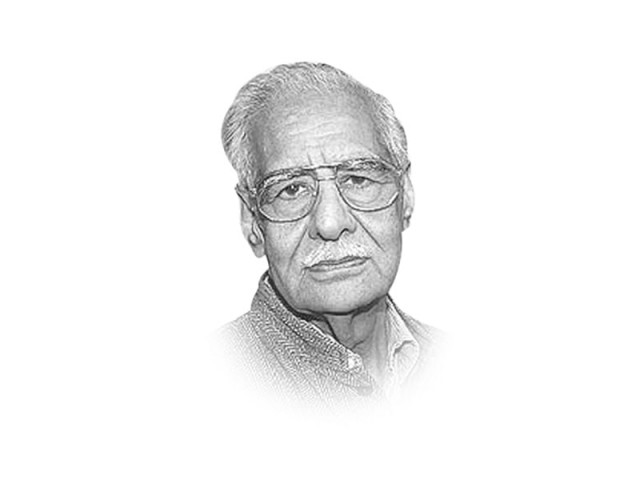Pakistan, India and Afghanistan
Pakistan and India need to discuss US long-term policy, but Islamabad is suspicious of New Delhi's interest in Kabul.

It is apparent that Washington wants to seal safe havens in Waziristan to which the militants retreat after attacking the US and Nato forces in Afghanistan. Hillary Clinton has even told Pakistan without naming it that it cannot “keep snakes in its backyard and expect that they will not bite the neighbours”. New Delhi, normally a victim of snake bites, has correctly cautioned America to be patient. Maybe this attitude impressed Pakistan to return the helicopter and officers. America, too, needs to introspect about its role because the sufferings of Pakistan are not entirely of its own making. The militancy is more than two decades old. Washington initiated it because it wanted to bleed the Soviet Union to death. It succeeded. America is again in touch with the largest militant outfit, the Haqqanis, against which it has asked Pakistan to act. But then, Pakistan is also talking to the Haqqanis. Pakistan has changed its policy from chastising the Taliban to talking to them because America is doing so.
Both do not trust each other. Pakistan is suspicious that America is not trying to outsmart it. Islamabad’s trust in Washington is zero after it eliminated Osama bin Laden without even a whiff of hint to Pakistan.
The dominant elements at Islamabad wrongly believe that the Haqqani network is at their command to needle Afghanistan or India. The Haqqanis have a different agenda and Pakistan should have known it from the unending blasts and attacks on its soil.
Hillary Clinton’s advice to Islamabad to eliminate them in days or weeks and not in months or years is a tall order. The British could not do so, nor could the Soviet Union. Pakistan is in comparison a small power. Also, Islamabad has to think of the nation’s reaction. The fundamentalists have acquired a solid support over the years and even the military has not remained immune from their influence. As for the public in Pakistan, it is sick of terrorism and what it has done to the society. This makes it all the more necessary for India and Pakistan to discuss America’s long-term policy in the region. There should be no two opinions on Afghanistan’s sovereignty and independence. Unfortunately, Islamabad is suspicious of New Delhi’s intentions and believes that it is trying to surround Pakistan through Afghanistan. The entire hypothesis is preposterous. Kabul is New Delhi’s strategic partner, not its strategic depth which Islamabad expects Afghanistan to be.
America is going to be more aggressive as the days go by and probably will not quit Afghanistan altogether. This is as dangerous for Islamabad and Kabul as for New Delhi. Washington’s presence in the region is ominous. Therefore, India and Pakistan should first meet to clear their apprehensions and then include Afghanistan in the talks to discuss how to oust foreign troops from the region.
As the first step, the three should join hands to defeat terrorism, which has taken roots in the region. Maybe Islamabad, not London, should convene the meeting and invite the countries concerned, including Iran, to discuss how to eliminate terrorism. New Delhi should help Islamabad in this endeavour.
There is no alternative to good relations between India and Pakistan. The earlier the two countries realise this, the better it would be for them and the region. America has made it clear by attacking countries, such as Iraq and Afghanistan, that it will use its might to serve ‘its purpose’, whatever that means. The countries, either in the Middle East or South Asia, have not reacted to Washington’s blandishments. The region does not look like it is waking up.
Published in The Express Tribune, October 30th, 2011.













COMMENTS
Comments are moderated and generally will be posted if they are on-topic and not abusive.
For more information, please see our Comments FAQ